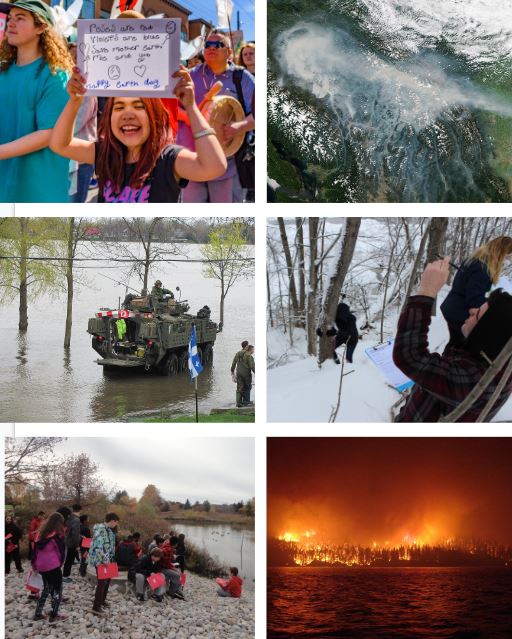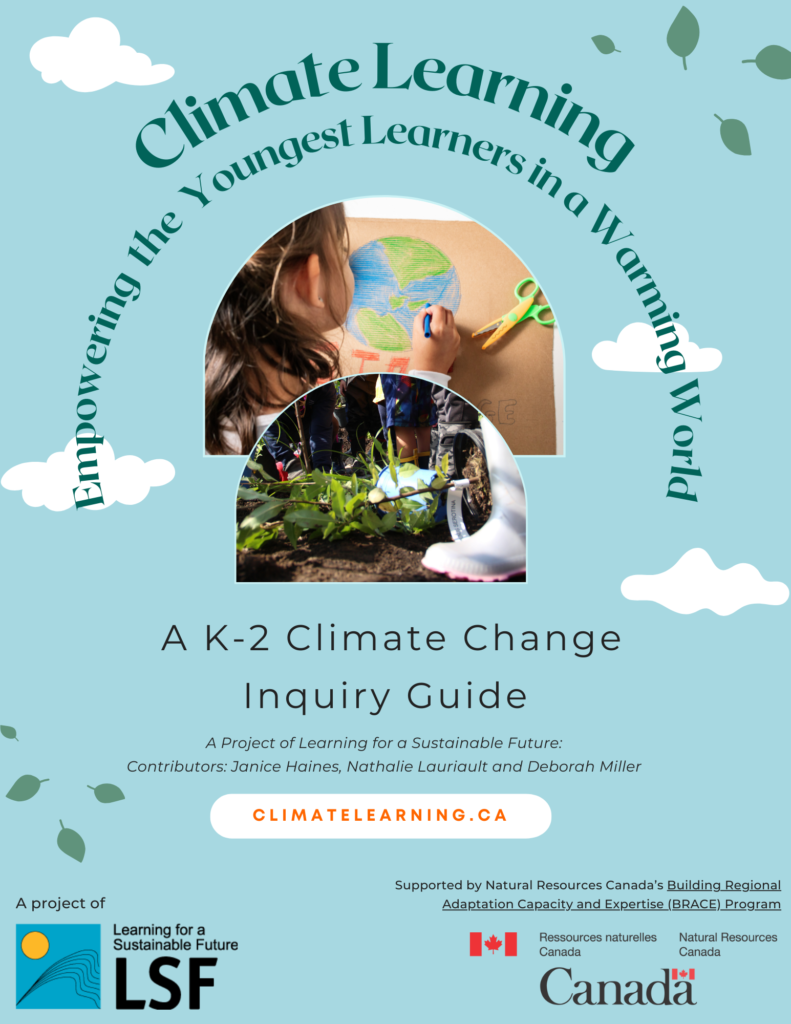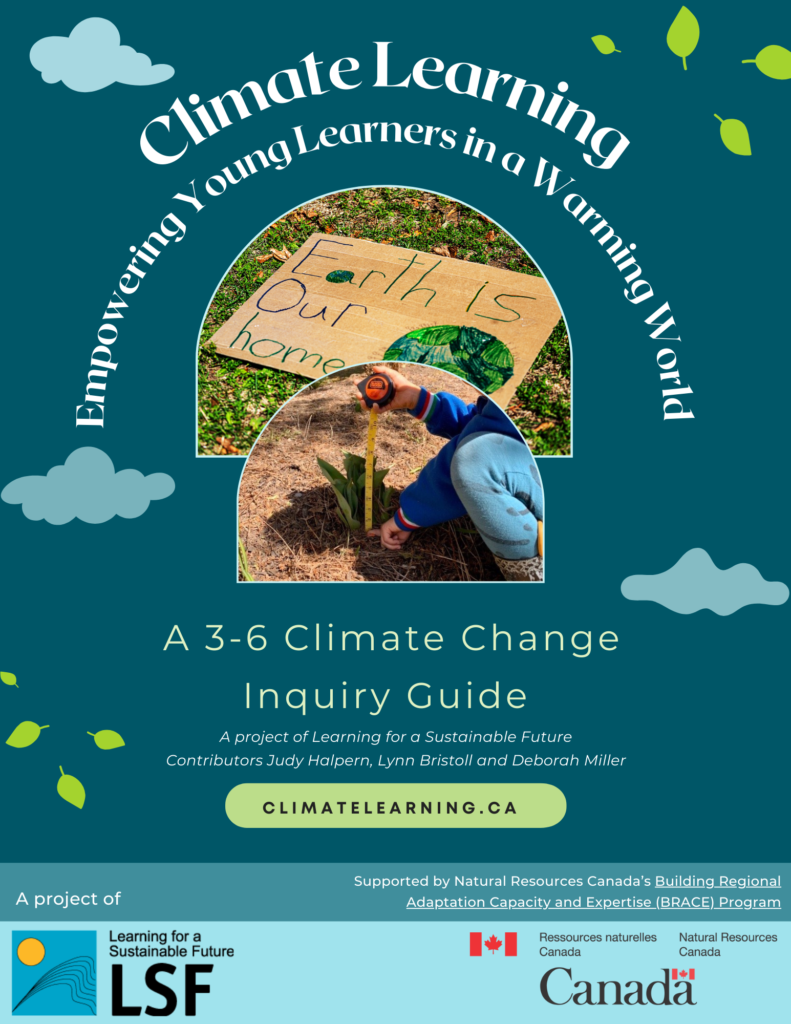Learning for a Sustainable Future
CLIMATE LEARNING
K-2 Guide
5 chapters of guided inquiries to bring climate change into any K-2 classroom
3-6 Guide
5 chapters of guided inquiries to bring climate change into any 3-6 classroom
7-12 Guide
9 Chapters of guided inquiries to address climate change across the 7-12 curriculum

Climate change is the most complex and wide-reaching challenge facing humankind today. It is essential that we help younger generations to be better equipped to take on this challenge and that we call on their energy, creativity and drive to help us all work towards a common goal. Education is critical to the global and national response to climate change.
For the most up to date information, data, and a comprehensive global assessment of climate change & mitigation efforts, refer to the most recent IPCC Report: IPCC Sixth Assessment Report: Mitigation of Climate Change
“The IPCC tells us that we have the knowledge and technology to get this done,” Inger Andersen, executive director for the UN Environment Programme, said “But increased action must begin this year not next year, this month not next month, and indeed today, not tomorrow.” (Tollefson, Nature, 2022).
Watch the IPCC’s Working Group III Sixth Assessment Report trailer here.
We have developed three different Inquiry Guides depending on students grade level. Each guide has been thoughtfully written by educators, and reviewed to ensure inclusion of all voices and Indigenous perspectives.
- K-2 Inquiry Guide (5-chapters, 2022): Empowering the Youngest Learners in a Warming World
- 3-6 Inquiry Guide (5-chapters, 2022) Empowering Young Learners in a Warming World
- 7-12 Inquiry Guide (9-chapters, 2020) Empowering Learners in a Warming World
Each inquiry structure will include:
- A series of potential provocations to invoke discussion, questions, interests and ideas among your students.
- Suggested strategies to generate questions
- Understanding and mental health check-ins with students
- Ideas to build knowledge
- Methods to consolidate information
- Stand-alone activities that teachers may want to integrate to ensure that students learn foundational concepts of climate change in a section called Pursuing Learning
- Ultimately support students to engage in action for the purpose of mitigation and adaptation.
Woven throughout each inquiry are lists of possible resources (including books and videos), and hands-on activities to pursue learning.
These resources were developed as a response to the gaps in knowledge, and requests for support that were identified in our national survey: Canada, Climate Change and Education: Opportunities for Public and Formal Education and feedback from teachers who have attended LSF’s professional development institutes. Our hope is that this resource is an accessible and comprehensive response to Canadian educators and will equip teachers with the background knowledge and tools to approach climate change education in their classroom, across subjects and curricular areas, and ultimately empower youth to become solutionaries. Read about some of the key highlights of the National survey in the Executive Summary here.
The purpose of this guide is to present opportunities to evolve students’ understanding of the climate and climate change, assess the risks and opportunities to mitigate and adapt to the changing climate, unpack ethical dimensions, and honour emotions that are part of the process of coming to understand the complexity and urgency of the issue.
Transformative teaching strategies used throughout this guide are important to tackling complex problems like climate change. These strategies often begin with the understanding and experiences that students bring with them. Educators, who themselves are grappling with climate change issues, take the role of facilitators and co-learners as the class works together to learn, critically reflect, and take action.
Most importantly, this guide aims to engage students in contributing to solutions in their schools, communities and homes. It aims to connect educators to instructional strategies that allow for students’ perspectives and voice, currently available climate change science and research, teacher resources and activities, datasets, and action solutions.
tell us what you think
PHONE
+1 (877) 250 8202
info@LSF-LST.ca
WEBSITE
www.LSF-LST.ca
ADDRESS
343 York Lanes, York University
North York, ON, M3J 1P3



